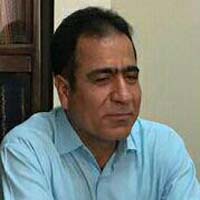Individuality and collectivism of natural education in Emile
In the 17th century, the concept of natural education was proposed by Rousseau in Emil's book, and despite the public and private acceptance of this book since its publication, Researchers have different opinions about whether Rousseau's words were oriented towards individuality or the collectivism of natural education.Although the scope of this controversy affects the whole of Rousseau's thought, an attempt has been made in this article After this issue is clearly stated in the book of Emil the opinion of, one of the most important contemporary commentators of Rousseau's educational views, Jürgen Oelkers, is given an example in favor of the individuality of Emil's natural education And with the help of her clarifications of Rousseau's educational views, a deeper understanding of Emile can be obtained, which can preserve the unity and coherence of Rousseau's thought in a lower layer; In this way, although individuality and population are natural characteristics of two distinct periods of the desire's development, But the principle of submission to necessity resonates throughout Emile, and it is this principle that keeps the unity of Rousseau's educational thought intact.
-
A Philosophical Exploration of Dramaturgy as an Educational Approach: Examining Roles and Proposing Improvements for the Teacher Education System
Mohammad Faghedi *, Alireza Mahmmudnia, Ramazan Barkhordari, Yahya Ghaedy
Journal of Technology and Scholarship in Education, -
Designing the Elementary School Science Curriculum based on Bhaskar's Transcendental Realism
Yunes Amirahmadi *, Saeid Zarghami-Hamrah,
Journal of Theory and Practice in Curriculum, -
Freedom and Practical Reason in Kant's Transcendental Philosophy in Light of Wissenschaftslehre of Fichte
Seyed Ali Yazdani*, Ahmad Ali Akbar.Mesgari
Journal of Recognition,




